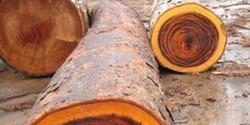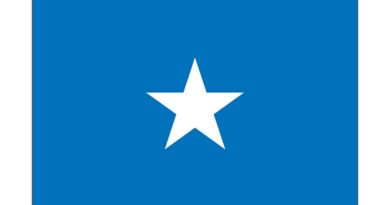World Wildlife Day 2021: The Exploitation of Rosewood in Nigeria – Acting to Save Nigeria’s Forests
Abuja, 3 March 2021-Rosewood is the trade name for a wide range of tropical hardwoods. The trade of a rosewood species, scientifically known as Pterocarpus Erinaceus or Kosso, – the name by which it is known locally in Nigeria – has grown exponentially in the last two decades. Listings and trade controls on different rosewood species put in place by the Convention on International Trade in Endangered Species of Wild Fauna and Flora (CITES) have forced key operators in the commercial sale of rosewood to continually seek new species, a situation which has led to Kosso, predominant in Nigeria and other parts of West Africa, emerging as one the main imported species of rosewood.
The World Wildlife Crime Report (WWCR) 2020 indicates that from around 2011 onwards growing volumes of rosewood were exported from West African, with a very sharp rise in 2017, when 825,000 cubic meters of Kosso logs or the equivalent of about 4 million trees were exported from the region, predominantly from Nigeria (754,234 cubic metres).
Indications are that most of the rosewood from West Africa has been sourced illegally. In October 2018, the CITES Standing Committee recommended that Parties suspend trade in rosewood from Nigeria until the country carries out a non-detriment findings assessment for trade in the species.
Trade restrictions, such as the one imposed on Nigeria’s export of Kosso by the CITES Standing Committee, are vital to protecting and sustaining Africa’s forests and biodiversity. The increasing demand for products such as rosewood associated with non-properly regulated trade puts the survival of these species and the forests that contain them at great risk.
Nigeria’s rosewood grows predominantly in arid areas with sparse forest cover. It fixes nitrogen levels in the soil, is resistant to fire, and provides protection and sustenance to a wide range of wild. In short, Kosso’s value to the ecosystem far outweighs its export value. In 2018, the International Union for the Conservation of Nature (IUCN) classified Kosso as “endangered” with a “decreasing population trend”.
The theme for this year’s World Wildlife Day “Forests and Livelihoods: Sustaining People and Planet” is a rallying call for concerted multifaceted actions to protect Nigeria’s and Africa’s precious forests.
The recently launched UNODC Strategic Vision for Africa (SVA) 2030 takes cognizance of the fact that the protection of Africa’s biodiversity for the benefit of its people, is one of the continent’s most pressing challenges.
UNODC is therefore partnering with the Nigerian Government with the support of the Government of Germany and the European Union in strengthening the response to the trafficking of wildlife and forest products through:
The development of the first-ever national strategy to prevent and combat wildlife and forest crimes;
Strengthening investigation, prosecution, and adjudication capacities in the area of wildlife and forest crime;
Facilitation of Corruption Risk Assessments in the wildlife and forestry sector; and
An assessment of Nigeria’s legal, institutional, and operational capacities to tackle wildlife and forest crime using the International Consortium on Combating Wildlife Crime (ICCWC) Wildlife and Forest Crime Analytic Toolkit and Indicator Framework.
We are in the middle of a quadruple planetary emergency: a climate crisis, a biodiversity-loss crisis, an inequality crisis, and a global health crisis. Forests and forest communities are at the center of each of these challenges and we must act to preserve and protect them.
(United Nations Office on Drugs and Crime)




